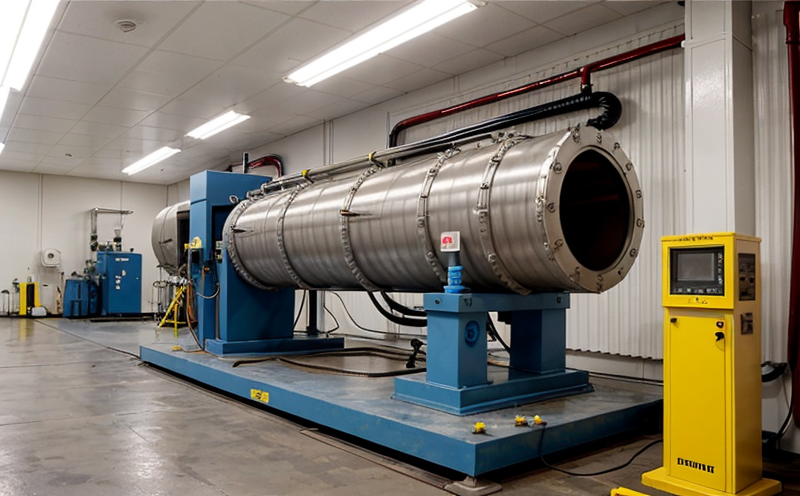ASTM C753 UF₆ Hydrolysis Impurity Testing
The ASTM C753 UF₆ hydrolysis impurity testing is a critical procedure used to evaluate the purity of uranium hexafluoride (UF₆). This test is particularly important in the nuclear fuel and isotope sector where the presence of impurities can have significant implications for reactor performance, safety, and overall quality. The ASTM C753 standard outlines specific methods for determining the amount of moisture and other impurities present after the UF₆ has undergone hydrolysis.
Hydrolysis is a chemical reaction involving UF₆ reacting with water to form uranium dioxide (UO₂), hydrogen fluoride, and hexafluoride. This process is crucial in the nuclear fuel cycle for converting enriched uranium into a more stable form that can be used in reactor cores or as feedstock for further processing.
The ASTM C753 test is vital because even trace amounts of impurities can lead to significant degradation of the material's quality and performance. In reactors, these impurities can cause corrosion, affect fuel rod integrity, and reduce efficiency. Therefore, ensuring that UF₆ meets stringent purity standards before undergoing hydrolysis is essential.
The testing procedure involves several steps:
- Sample preparation: The UF₆ sample must be carefully prepared to ensure it represents the material accurately.
- Hydrolysis: The sample undergoes a controlled hydrolysis reaction, typically with water at specific conditions to mimic real-world reactor environments.
- Detection and quantification: After hydrolysis, the sample is analyzed for impurities using advanced analytical techniques like gas chromatography or atomic absorption spectroscopy.
The ASTM C753 standard provides detailed guidelines on how to conduct these tests accurately. It specifies the equipment required, the conditions under which testing should be performed, and the acceptable levels of impurity. The results are reported in terms of moisture content and other identified impurities.
Understanding the purity of UF₆ is not just about meeting regulatory requirements but also ensuring that nuclear fuel systems operate safely and efficiently. This test helps quality managers, compliance officers, R&D engineers, and procurement specialists make informed decisions regarding material selection and process control.
| Standard Reference | Title |
|---|---|
| ASTM C753 | Determination of Moisture Content, Total Fluorine, and Impurities in Uranium Hexafluoride (UF₆) |
Applied Standards
The ASTM C753 UF₆ hydrolysis impurity testing adheres to the following standards:
- ASTM C753: This standard provides specific protocols for determining the moisture content, total fluorine, and impurities in uranium hexafluoride. It is essential for ensuring that the material meets purity requirements before undergoing hydrolysis.
Benefits
- Ensures high-quality nuclear fuel by identifying and quantifying impurities, thereby enhancing reactor performance.
- Facilitates compliance with international regulations and standards for nuclear materials.
- Aids in the optimization of production processes to minimize the introduction of contaminants into the UF₆ supply chain.
- Supports research and development efforts by providing precise data on material purity, which is crucial for advancing nuclear technology.
- Improves safety by reducing the risk of corrosion and other issues that can arise from impure UF₆ materials.
International Acceptance and Recognition
- The ASTM C753 standard is widely recognized in nuclear fuel and isotope testing, ensuring consistency across global markets.
- Many countries with active nuclear programs use this standard to maintain quality control in their respective industries.
- Achieving compliance with ASTM C753 can open up opportunities for international trade and collaboration within the nuclear sector.
The ASTM C753 UF₆ hydrolysis impurity testing is a cornerstone of the nuclear industry, providing essential data that supports safe and efficient reactor operations. Its international acceptance ensures that results are credible and universally applicable, which is critical for global nuclear fuel supply chains.





